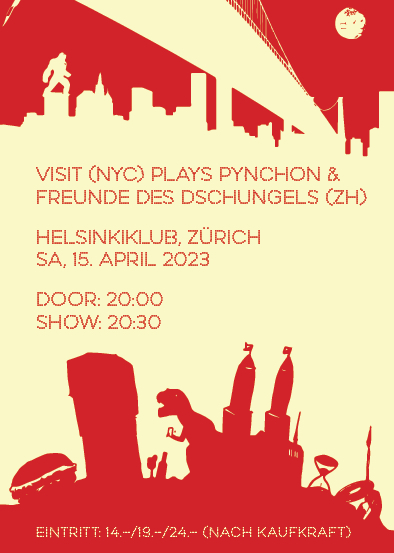Pynchon's Sound of Music is dedicated to cataloging, exploring, and interpreting the manifold manifestations of music in Thomas Pynchon's work. An original mix of close and distant readings, this monograph employs a variety of disciplines—from literary studies and musicology to philosophy, media theory, and history—to explain Pynchon through music and music through Pynchon.
Encyclopedic and eclectic—though never exhaustive—in its approach, Pynchon's Sound of Music discusses the author's use of instruments such as the kazoo, the harmonica, or the saxophone and embarks on close readings of the most salient and musicologically tantalizing passages. Zooming out to a bird's eye view, all his historical musical references and allusions are put into perspective to trace the trends and tendencies in the development of the oeuvre's interest in music.
A treasure trove for fans and an invaluable source for future scholarship, this book includes the Pynchon Playlist, a 900+ item catalog of all musical references, and an exhaustive index of more than 700 appearances of musical instruments.
---
Christian Hänggi amps up the importance of Pynchon’s oeuvre by tuning it to the musical registers upon which a number of films and novels depends. From Nietzsche to Pynchon music has served to underscore psychic meltdowns, philosophical rifts, and remote cultural controls. Hänggi explores these connections with passion and a rare comprehension of the death marches and ecstatic abandon to which, programmed by Pynchon’s cadences, we succumb.
—Avital Ronell, New York University
This book about music in Thomas Pynchon’s novels and other writing is lively, entertaining, and damn near exhaustive. Christian Hänggi discusses everything from Pynchon’s musical allusions to the made-up song lyrics which punctuate his books, to the ways that these novels themselves are organized as musical forms. You can read it straight through, or you can search for the bits that you find most interesting—either way, if you have the slightest interest in Pynchon, you are in for an enjoyable ride.
—Steven Shaviro, DeRoy Professor of English, Wayne State University
In this first comprehensive study of music in Pynchon’s fiction, amateur musician and literary scholar Christian Hänggi brilliantly explores not just the uses Pynchon makes of music to tell his stories, as a more conventional study might do, but “the stories music tells” in Pynchon’s fiction. History, musicology and literary criticism contribute to a range of analyses, from the ethical to the quantitative, supporting the core argument that in Pynchon “the aesthetic … is always in some way political.” A research project and a labor of love, Pynchon’s Sound of Music is richly informative, entertaining, often surprising, and provocative.
—John M. Krafft, Miami University, Ohio
